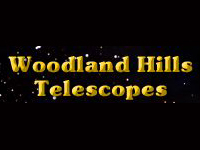By Cheryl Ann Bishop from IDA The rapid changes in LED lighting technology have given rise to an LED retrofit revolution. Across the globe, municipalities are opting to switch out their older street lighting to new, more energy-efficient LEDs. Unfortunately, these changes have also given rise to misinformation about LEDs, dark skies, safety and the environment. StreetLights - Photo by Jim Richardson Myth #1: The use of LEDs reduces light pollution and is “good for dark skies” because they're highly energy efficient. Yes, LEDs are more energy-efficient, but that fact can ironically lead to more light as cities spend the...
By Nancy Alima Ali “The journey of a thousand miles begins with one step.” ~Lao Tzu How do you become a rocket scientist? One step at a time. In my job at the Space Sciences Lab at the University of California at Berkeley, I'm fortunate to work alongside some of the world's top rocket scientists. Many people know the phrase, “It's not rocket science,” meaning something not very hard—with the implication that rocket science is extremely difficult for most people by comparison. College student explores Space Science Lab with team girl While it's true that rocket science IS complex, what...
Dave Fuller challenges you to view star cluster NGC 1502 and a eye-catching line-up of stars known as Kemble's Cascade in this special GAM 2016 episode of Eyes on the Sky .
By Eva Ntormousi In 2014 two of us were invited, as members of an outreach program, to spend a couple of weeks in Bogota, Colombia and talk with children in different schools about astronomy. Needless to say I was more than excited to say yes to this, not only because of the destination, but also because I really enjoy sharing my love for science with people. Now the outreach program in question, like many astronomy outreach programs, is very simple in its intentions and in its implementation: we travel to places and try to initiate a conversation with young people...
By Monica Young For hours under August skies, I have been known to sprawl out on the grass, listening to crickets sing and counting the meteors flashing by. On more than one crystal winter night, I bundled up my 4-year-old, and we set out to look for the Orion Nebula. Even when I exit the grocery store, I often glance up to say a quick hello to Jupiter or Orion. But why? What use is stargazing and night-dreaming? Why count meteors or learn the constellations? It's not as if it hasn't already been done a hundred times before, a more...








